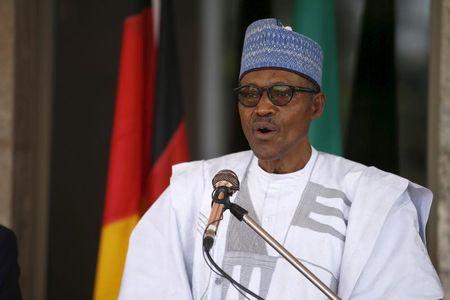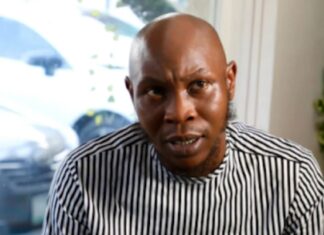By Emeka Alex Duru
Hours after President Muhammadu Buhari’s national broadcast on Monday, August 21, 2017, there were uncertainties on whether the speech had united Nigerians or had widened the gulf among them.
The speech came on the heels of the President’s return, on Saturday, from a London hospital where he had been on admission since May 7 – the second leg of the exercise, this year.
Shortly after Buhari’s spokesman, Femi Adesina unfolded the programme of his return and the Monday broadcast, Nigerians were high on expectations on the direction and substance of the speech.
Coming against the backdrop of the economic recession that has held the nation down since the inauguration of the administration, resurgence of Boko Haram insurgency, increasing demand for restructuring the country and the rising agitation for self-determination by some sections of the country, many had expected the President to announce a template for tackling the obviously scary tendencies.
Nigerians draw roadmap
Professor of International Law, University of Lagos, Akin Oyebode, had, for instance, urged the President to use the occasion to address the menace of insurgency that seemed to have bounced back with full force during his absence. He also advised him to touch on the on-going clamour for restructuring by some sections of the country.
In similar stead, Professor of Media and Communications, Pan African University, James Tsaaio, had expected the President to use the address to throw lights on government’s agenda at handling the incidences of agitations in the country in a way that would be acceptable to all. He equally asked him to speak on the on-going crisis between the Federal Government and the Academic Staff Union of Universities (ASUU), among other issues. Other commentators equally set various agenda for the President before the occasion.
Buhari talks tough
Buhari, however went on his own on Monday, delivering a speech that threw away all permutations and expectations. Sounding his trademark tough tunes, he put up an appearance that was shun of diplomacy and conciliation with various unusual trends in the land.
He claimed, for instance, to have monitored developments in the country while abroad and frowned that some of the comments, especially in the social media, had questioned the collective existence of Nigeria as a nation, describing the exercise as a step too far.
He made reference to his discussion with late Igbo leader, Chukwuemeka Odumegwu Ojukwu, in 2003, shortly after his entry into politics, where, according to him, they agreed that the country’s unity was not negotiable.
The President did not mention any witness to the discussion and did not state other issues he discussed with Ojukwu.
He then thundered, “Nigeria’s unity is settled and not negotiable. We shall not allow irresponsible elements to start trouble, and when things get bad they run away and saddle others with the responsibility of bringing back order, if necessary with their blood”.
Buhari did not indicate where his anger was pointed at. Informed analysts however insinuated that he could be referring to Nigerians demanding restructuring of the federation and those seeking self-determination agenda.
Calls for restructuring resonate
Nigerians of different hue, have in recent time, registered their support for restructuring the country along the lines of equity and good governance. Some have also called for devolution of power from the centre to the various federating units. Among those that have made the calls, were former military president, Ibrahim Babangida, former Vice President, Atiku Abubakar, erstwhile Commonwealth secretary general, Emeka Anyaoku, Ohanaeze Ndigbo president, John Nnia Nwodo, eminent lawyer and Afenifere chieftain, Ayo Adebanjo.
Though the Senate did not give approval to the quest in its recent constitution amendment seating, the agitation has remained a topical issue in national discourse. At a stage in fact, the Vice President, was alleged to have disparaged those championing the call for restructuring as attention seekers. When however the heat was turned on him by the affected statesmen, he denied making the statement.
“Are these the caliber of people Buhari referred to as “irresponsible elements”, an obviously distraught lecturer in Department of History, Lagos State university, who did not want his name mentioned, fumed.
Warning shot to IPOB?
There are also suggestions that Buhari may equally be throwing darts at the direction of Nnamdi Kanu and his colleagues in Indigenous Peoples of Biafra (IPOB), who have been agitating for a separate state of Biafra. IPOB activists in going about their demand, have had unpleasant experiences in the hands of the military and other law enforcement agencies.
A report by Amnesty International between August 2015 and August 2016, for example, put members of IPOB killed by the soldiers within the period at over 150.
There are fears that going by the vehemence expressed by the president in his speech, more members of IPOB will be mowed by the soldiers, especially considering the insistence of the members of the organisation to forge ahead with their agenda of an independent Biafra.
Kid gloves for Arewa Youths, Fulani herdsmen
Curiously, the President merely skirted around the October 1 quit notice on the Igbo living in the North, by the Arewa Youths. Aside echoing the constitutional provision that, “Every Nigerian has the right to live and pursue his business anywhere in Nigeria without let or hindrance”, he did not make any statement at addressing the tension already rising in the land on account of the order by the northern youths.
He also reduced the regular invasion by criminal elements of Fulani herdsmen on host communities to mere herdsmen versus farmers’ clashes.
APC backs the President
Buhari’s political platform, All Progressives Congress (APC), did not see anything wrong in the speech, stressing rather, that it was aimed at ensuring the safety of Nigerians wherever they are domiciled.
Expressing satisfaction over the President’s emphasis on the unity of the country, APC Deputy National Chairman (North), Senator Lawal Shuaibu, noted that the most important function of a government is security.
“Any action that can threaten the security of life and property, should be the primary concern of any responsible government,” he said.
According to him, “One major concern that can be deduced from the speech is the President’s conscious attempt in nipping in the bud the purported quit notice given by some misguided youths in the north, as well as, their counterparts elsewhere who have been heating up the polity by fanning the embers of discord. The security of life and property of every Nigerian, regardless of tribal or religious affiliations, is non-negotiable.”
Fani-Kayode, Ezekwesili kick
Peoples democratic Party (PDP) chieftain and former Aviation Minister, Femi Fani-Kayode, however faulted the content and language of the President’s broadcast, describing it as an insult to Nigerians.
In a statement credited to the former minister, he said, “During his thoroughly uninspiring six minute broadcast, instead of appealing to Nigerians for patience and understanding and instead of apologizing to them for the ineptitude and sheer incompetence that his government has displayed over the last two years, President Muhammadu Buhari has returned home after 105 days on his sick bed in the United Kingdom and not only insulted Nigerians but also threatened them.
“He made no attempt to reach out to the people, to build bridges and to calm the troubled waters in what is clearly a traumatised and divided nation and instead he sought to intimidate and talk down on our people and his perceived enemies”.
Fani-Kayode urged the President to always be temperate in his engagement with the people, reminding him that times have changed and that he cannot impose his will on others.
“If he wants to enhance national unity, which is of course a noble and righteous venture, and if he really wants Nigeria to remain one then he must desist from his dangerous and provocative rhetoric, he must treat all Nigerians like human beings and as equals, he must exhibit a much higher degree of sobriety and accommodation of contrary and dissenting views and he must display far more sensitivity, understanding and restraint in his interactions and discourse with the opposition and those that do not agree with him”, he added.
Convener of the Bring Back Our Girls (BBOG) group and former education minister, Oby Ezekwesili, argued on the same line with Fani-Kayode, described the broadcast as missed opportunity by Buhari.
According to her the president, in his posturing and utterance, missed the opportunity to soothe and assure Nigerians over his presidency and different agitations rocking the country.
- Advertisement -
- Advertisement -











